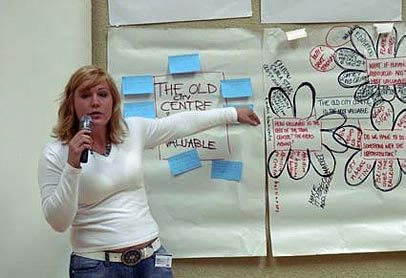Casestudy 23Europe
The Innovation Circle
- description
- further information

© Baltic Innovation Group
The Baltic Sea region includes some of the most remote rural areas in Europe, in Sweden, Finland and Norway. The region also includes Poland, and Estonia, Latvia and Lithuania, countries which were part of the USSR from the 1940s to the early 1990s. Rural regions and small towns outside the capital cities in all these countries are losing young people who go to large cities for higher education then do not return home after graduating. There are few facilities for higher education in many of these regions. Ageing and dwindling populations are less innovative than young populations with many new-comers and outsiders. A cycle of decline is a real risk, with loss of jobs and services accelerating out-migration. Officials working in small towns in sparsely populated areas can easily feel isolated. Similarly, officials who spent the formative years of their working life in public service in the USSR, where local government had little autonomy, are less likely to have the skills needed to deliver today’s public services.
Under the leadership of Alytus municipality (Lithuania) 12 other councils and civil society bodies including some from Russia have got together to develop a programme of collaborative learning on the theme of innovation. The learning takes place through reading distance learning materials specially commissioned by the project, covering themes that include competitiveness, governance and participation, sustainable design, business development and project management. There are face-to-face workshops that support the development of skills linked to the reading. Ideas are then put into practice through projects delivered locally but in partnership with other members of the Innovation Circle. Last but not least there are summer camps for young people, where they also learn about innovation and become more aware of the positive features of their home towns and regions and the scope for getting involved in their future. Outreach to involve youths is a key theme in the project.
The backgrounds of those taking part are varied. As well as a minority who are professional planners or architects, there are teachers, cultural workers, youth workers, administrators, politicians and some people from the business sector. There is a strong emphasis on skills of creativity, team working, planning and good governance. Partners are able to benchmark themselves against others and pick up new ideas. A project website also keeps people in touch though they live far apart and provides a resource for all partners.Go back to case studies listing
